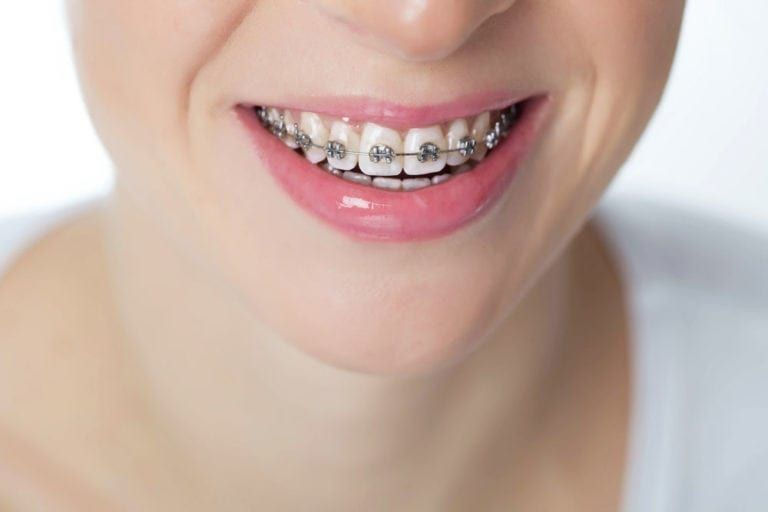What to Expect Before, During, and After Your Dental Veneer Procedure
- dclinicdubai
- Jan 3
- 4 min read
If you're considering enhancing your smile with dental veneers in Dubai, understanding the procedure from start to finish is crucial. Dental veneers are a popular cosmetic dentistry solution that can dramatically improve the appearance of your teeth. Here's a comprehensive guide on what to expect before, during, and after your dental veneer procedure to help you prepare for your journey to a confident smile.

1. Before Your Dental Veneer Procedure:
Proper preparation is essential to ensure the success of your dental veneer treatment. Here's what happens before the procedure:
Initial Consultation:
Discuss your cosmetic goals with your dentist.
The dentist will evaluate your teeth and gums to ensure you're a suitable candidate for veneers.
X-rays or digital scans may be taken to assess your oral health.
Treatment Plan:
The dentist will create a personalized treatment plan based on your desired outcome.
You will discuss the type of veneers that best suit your needs, such as porcelain or composite.
Tooth Preparation:
In some cases, a small amount of enamel may need to be removed from your teeth.
This step ensures that the veneers fit perfectly and look natural.
The dentist will take an impression of your teeth to create custom veneers.
2. During Your Dental Veneer Procedure:
The veneer application process is typically straightforward and completed in one or two visits, depending on the type of veneers chosen.
Step 1: Enamel Removal:
For porcelain veneers, a thin layer of enamel is removed to make room for the veneers.
This step is usually painless, but local anesthesia may be used to ensure your comfort.
Step 2: Impressions:
The dentist will take detailed impressions of your prepared teeth.
These impressions are sent to a dental lab to create your custom veneers.
Temporary veneers may be placed to protect your teeth while waiting for the permanent ones.
Step 3: Veneer Bonding:
Once your custom veneers are ready, the dentist will place them on your teeth to check the fit and appearance.
The veneers are then permanently bonded to your teeth using a special adhesive.
A curing light is used to harden the adhesive, ensuring a strong bond.
Final Adjustments:
The dentist will make final adjustments to ensure the veneers look natural and feel comfortable.
Your bite will be checked to prevent any discomfort or misalignment.
3. After Your Dental Veneer Procedure:
Caring for your veneers properly will ensure they remain in excellent condition for years to come.
Immediate Care:
Avoid eating hard or sticky foods for the first few days.
Follow any specific aftercare instructions provided by your dentist.
You may experience slight sensitivity, which should subside within a few days.
Long-Term Maintenance:
Practice good oral hygiene by brushing and flossing daily.
Use a non-abrasive toothpaste to avoid damaging the veneers.
Schedule regular dental check-ups to ensure your veneers remain in top condition.
Lifestyle Considerations:
Avoid habits that can damage your veneers, such as chewing on ice or biting your nails.
Limit consumption of staining foods and beverages like coffee, tea, and red wine.
Consider wearing a night guard if you grind your teeth while sleeping.
4. Pros and Cons of Dental Veneers:
Understanding the benefits and potential drawbacks of dental veneers can help you make an informed decision.
Pros:
Immediate improvement in the appearance of your smile.
Long-lasting solution for cosmetic dental issues.
Stain-resistant, especially porcelain veneers.
Customizable to match your natural teeth.
Cons:
Irreversible procedure for porcelain veneers.
Cost can be high, depending on the type of veneers.
Requires proper maintenance to prevent damage.
Not suitable for individuals with severe dental issues.
5. Common Questions About Dental Veneer Procedures:
Q: Are dental veneers painful?
The procedure is generally pain-free. Some patients may experience mild sensitivity, which usually subsides within a few days.
Q: How long do dental veneers last?
Porcelain veneers can last 10-15 years or more with proper care. Composite veneers may last around 5-7 years.
Q: Can I eat normally after getting veneers?
Yes, but it’s important to avoid hard and sticky foods initially. Over time, you can resume your normal eating habits.
6. Tips for a Successful Dental Veneer Experience:
Choose an Experienced Dentist:
Look for a dentist with extensive experience in cosmetic dentistry.
Check patient reviews and before-and-after photos to assess the quality of their work.
Communicate Your Expectations:
Be clear about your cosmetic goals and ask questions during your consultation.
Ensure you understand the process and what results to expect.
Follow Aftercare Instructions:
Adhering to your dentist’s aftercare advice will ensure your veneers remain in great condition.
Regular dental check-ups are essential for long-term success.
7. Conclusion:
Getting dental veneers in Dubai can be a transformative experience, giving you the confidence to show off your smile. By understanding what to expect before, during, and after the procedure, you can ensure a smooth and successful journey. With the right care and maintenance, your veneers will provide you with a stunning smile for years to come. Choose a trusted cosmetic dentist, communicate your expectations, and follow proper aftercare to enjoy the full benefits of your dental veneers.
Readmore about: Exploring the Different Types of Dental Veneers: Pros and Cons


Comments